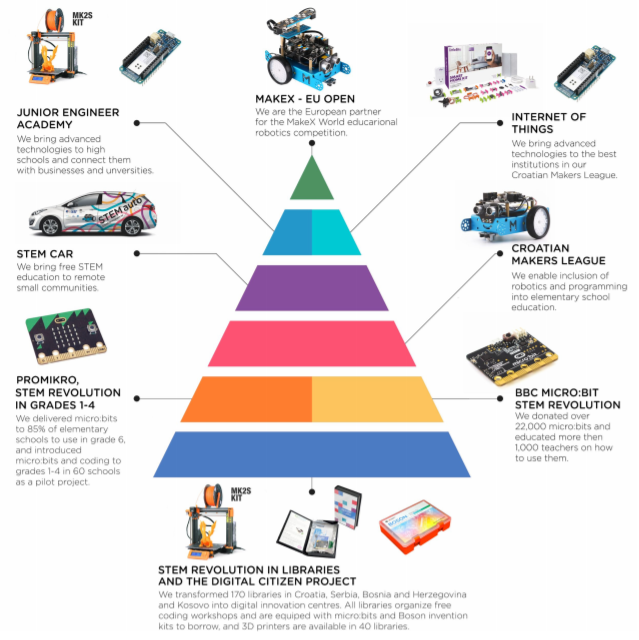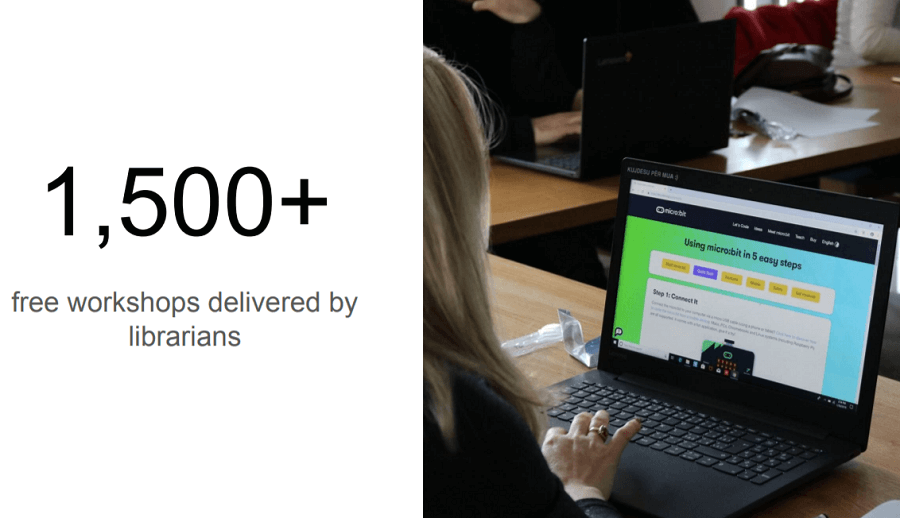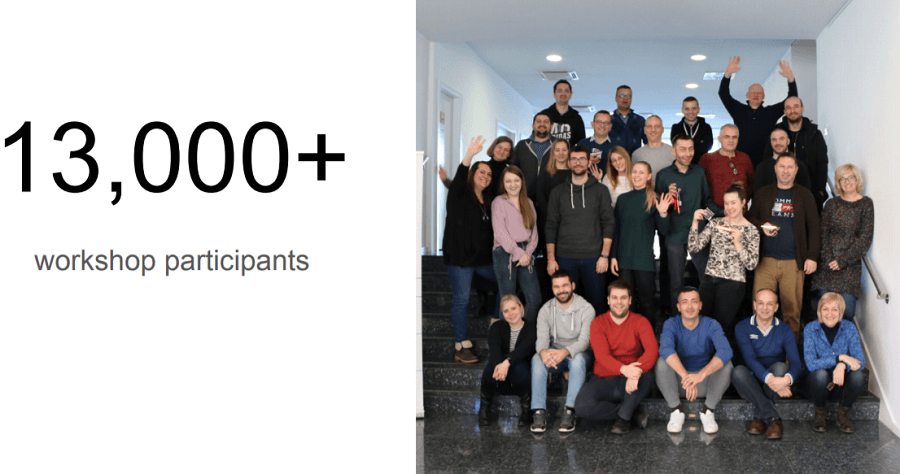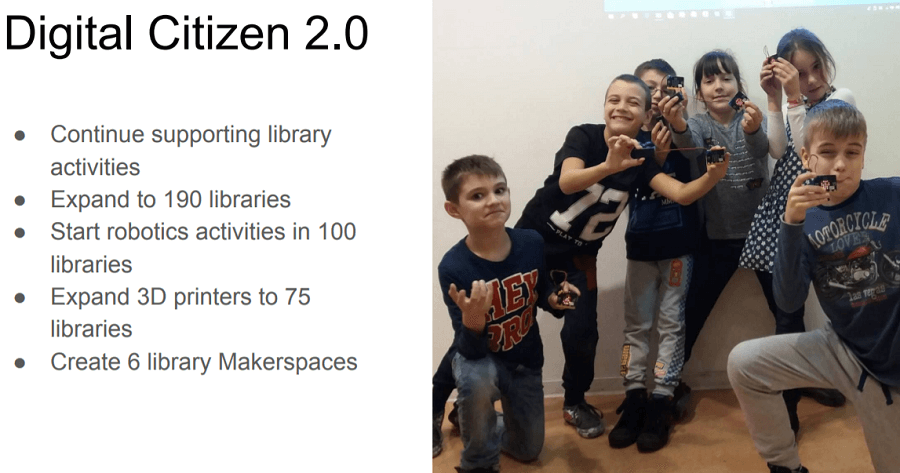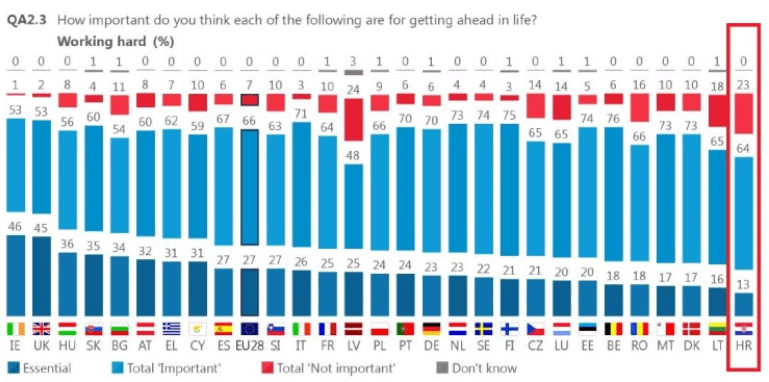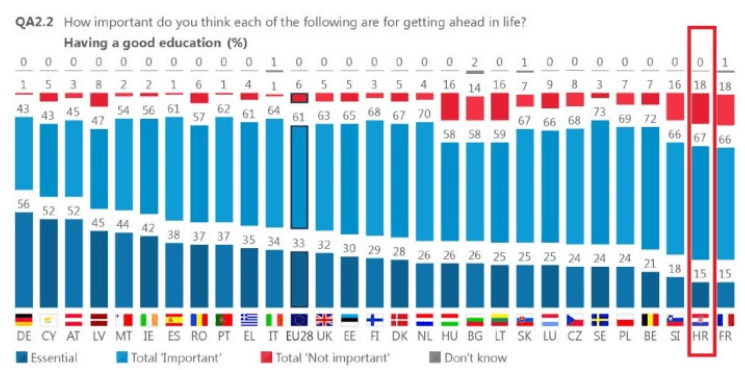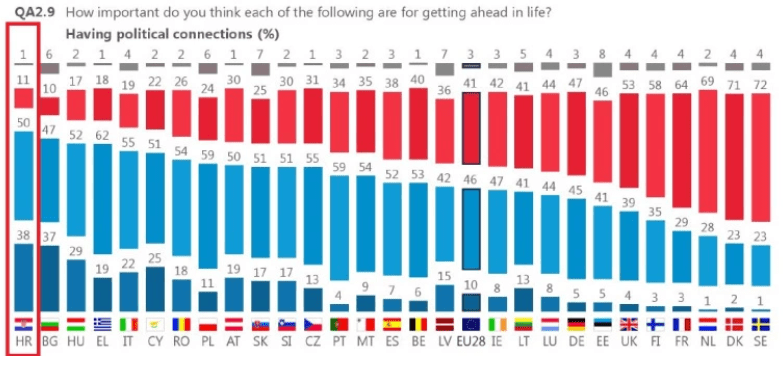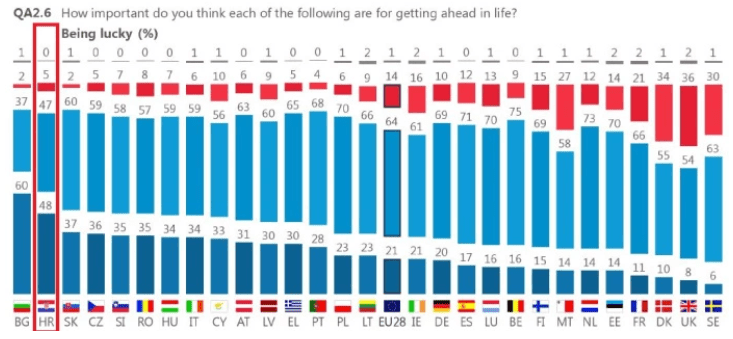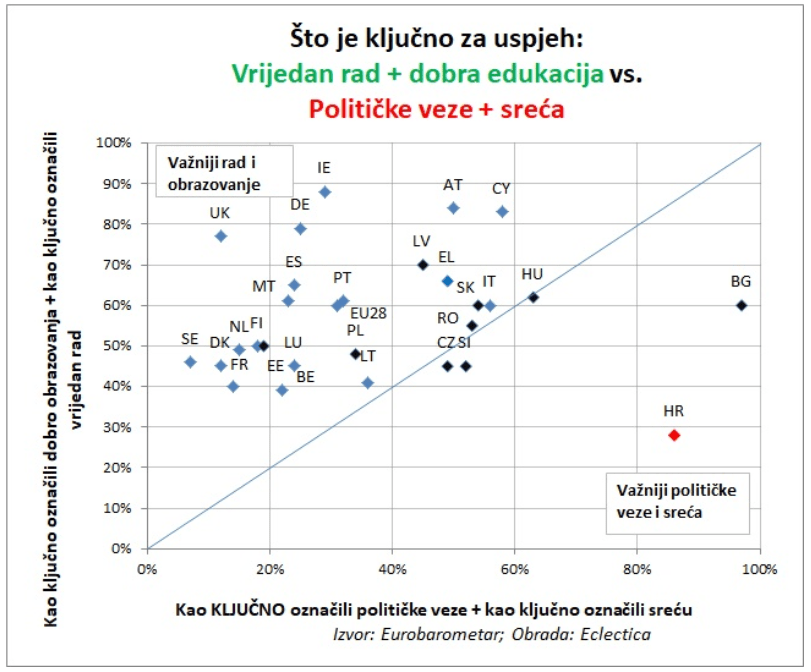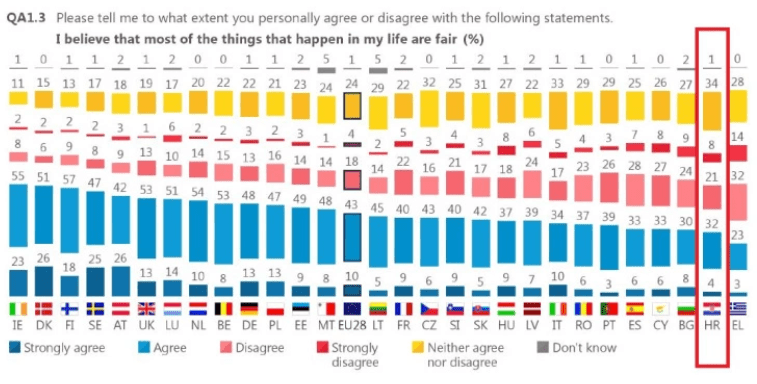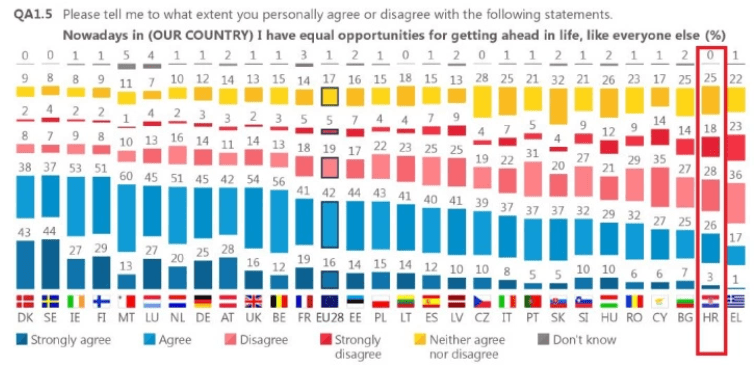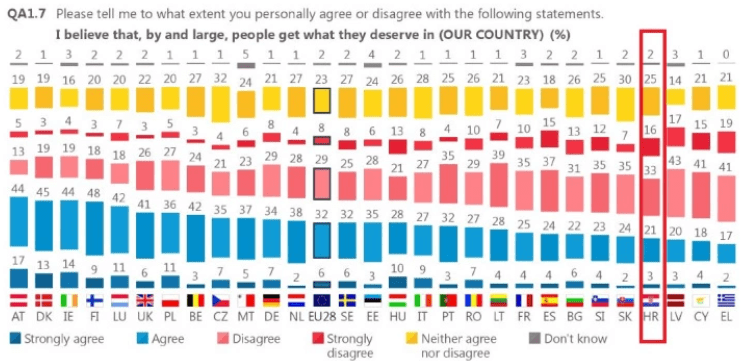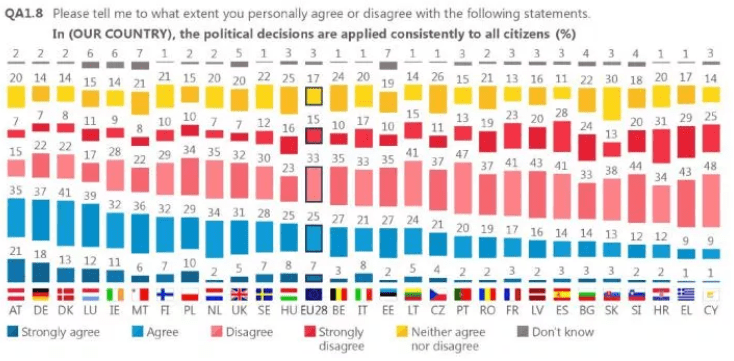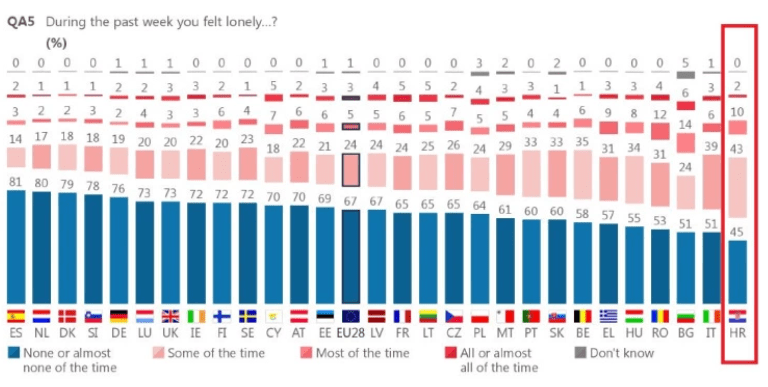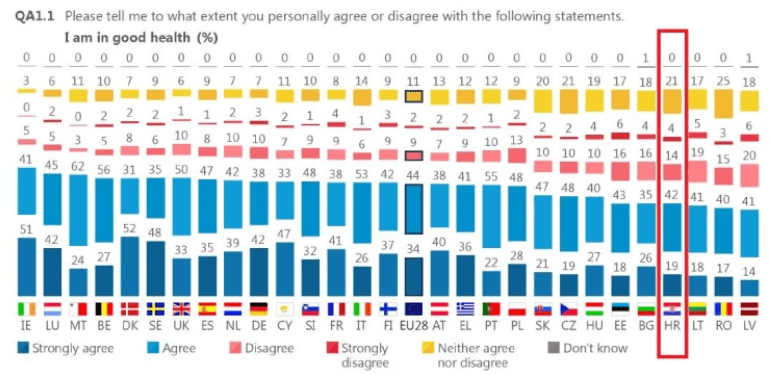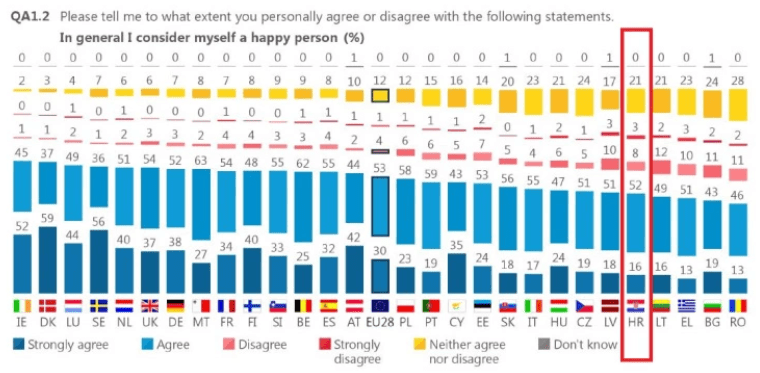Croatian Makers 2020 Review: Digital Skills for the Next Generation
January 1, 2021 – The year 2020 was the most difficult for many, especially for children. With Croatian Makers, the largest extracurricular STEM program in Europe, the Institute for Youth Development and Innovation made a special effort to make up for at least part of what children lost.
The Institute for Youth Development and Innovation (IRIM) is the largest non-state educational program in the EU that helps children realize their potential and be equal citizens of the 21st century.
Launched in Croatia, IRIM primarily operates there but has also expanded its activities to Serbia, BiH, and Kosovo. It focuses on the development of digital and scientific literacy and technological and other competencies within the STEM area for young people.
This year, the challenge was all the greater because they had to pay special attention to the heavy workload and stress to which were exposed the project participants – children and youth. TCN brings their 2020 review by topic below.
Croatian Makers Robotics League
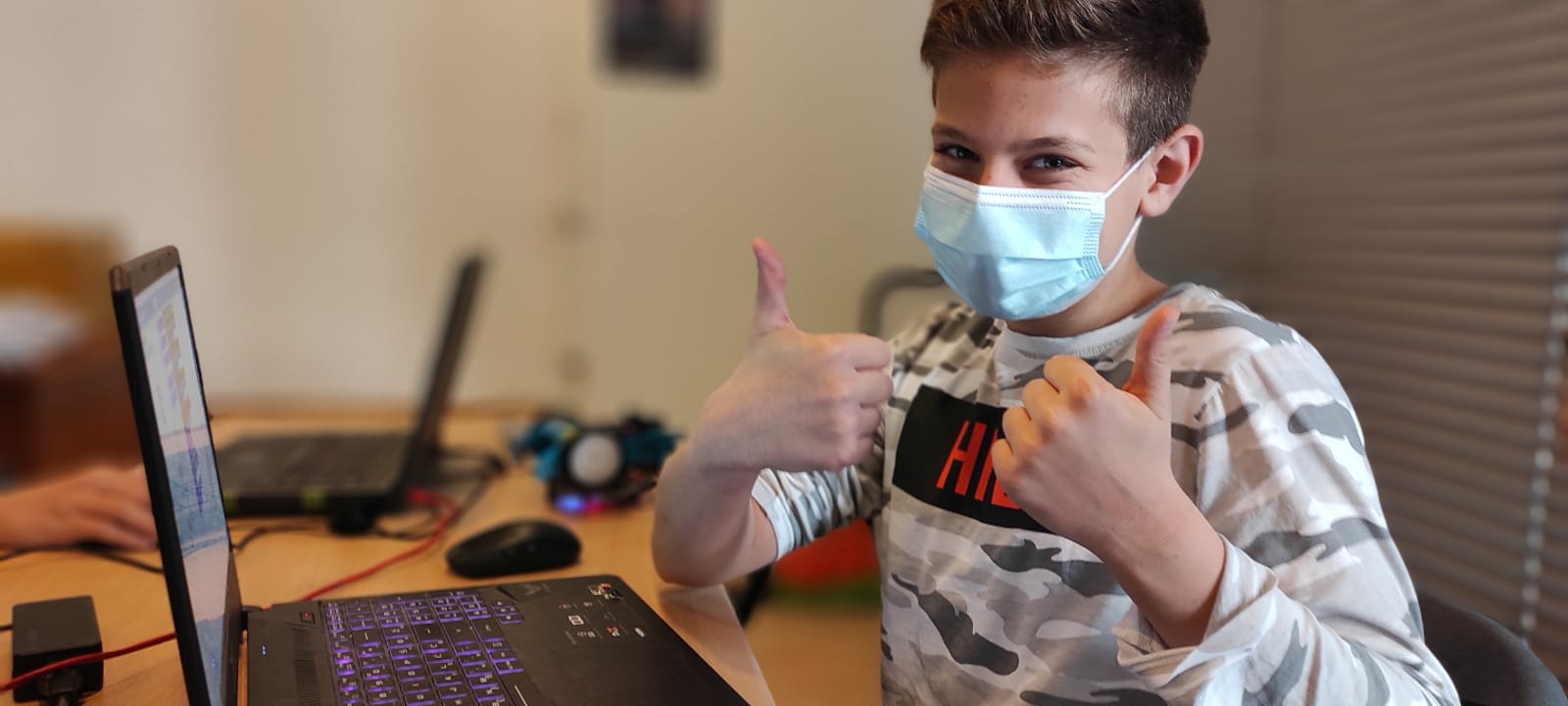
Source: IRIM/Croatian Makers
Robotic League is the first major IRIM project which began in the 2015/16 school year. The goal is to broadly involve robotics, automation, and programming in primary school education.
They have included more than 600 schools and non-profit organizations and donated 3,000 mBot robots (5 per institution). In each of them, they educated at least one mentor free of charge so that he could work with children.
Despite the pandemic and the introduction of online classes, IRIM managed to hold as many as three of the planned four rounds. The League's principle is regularity and locality, not a one-time competition for the best. In this way, they achieve equal opportunity and better integration into children's education.
They plan to hold three rounds of the League this school year. All Croatian Makers League's institutions can participate despite the pandemic. They have adjusted the competition, and all activities are online. This school year, the competition's theme is the exploration of the planets and the robot's return to Earth, as a continuation of the past year in which the robot embarked on a space journey.
Digital Citizen 2.0
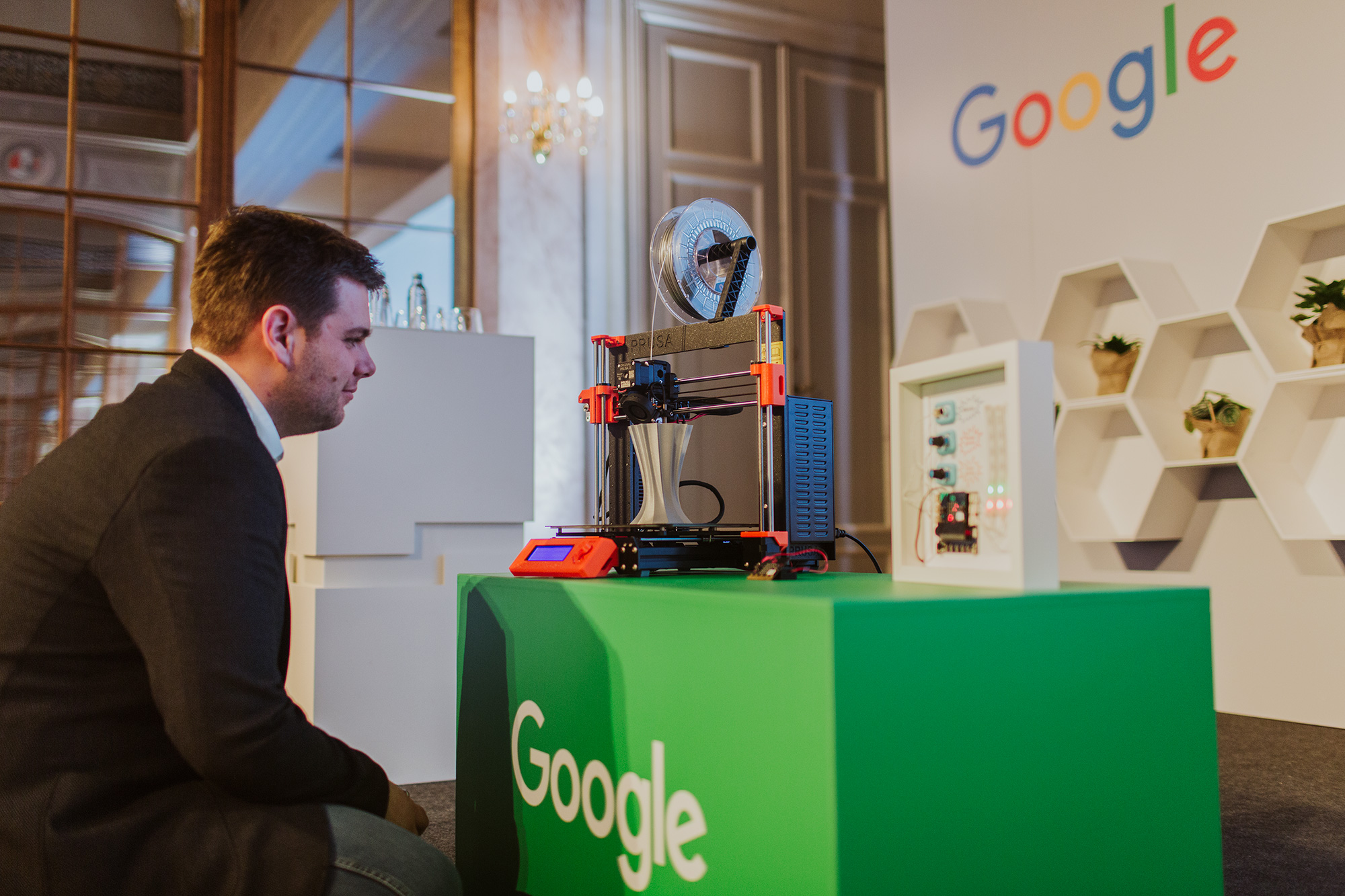
Source: IRIM/Croatian Makers
In February, they continued the Digital Citizen 2.0 project, a collaboration with Google.org that supported it with an additional 400,000 dollars. The project's goal is to develop digital skills in libraries, transforming public libraries into digital innovation and education centers.
They do this with technologies such as microcomputers, robots, and 3D printers. They make modern educational technology accessible to adults and children, which will enable the introduction of digital skills in local communities.
The project is international, funded by Google.org, and takes place in 170 libraries in Croatia, Bosnia and Herzegovina, Serbia, and Kosovo.
In August and September, they held 100 workshops (one in each library in the project in Croatia) where they donated micro:Maqueen robots to libraries and educated librarians on this equipment.
New educational web portal
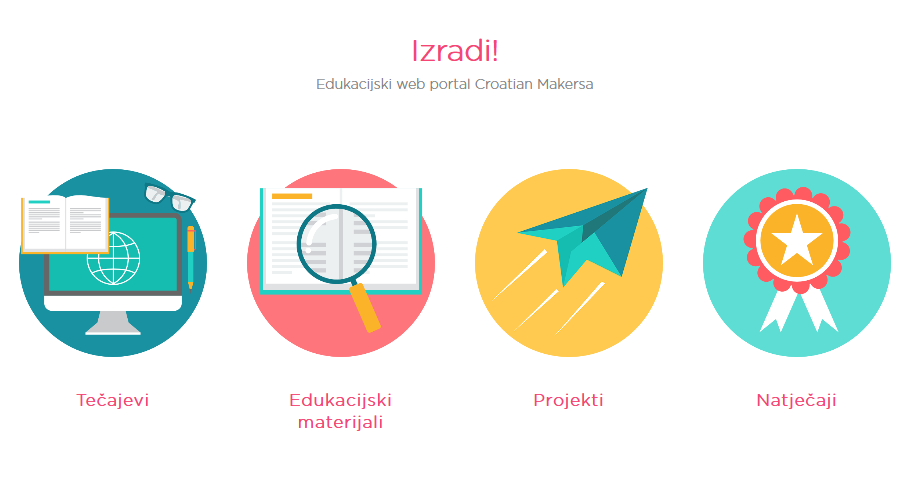
Source: IRIM/Croatian Makers
During the summer, they released a new and improved "Izradi!" educational web portal. As before, users can educate for free about using the technologies they use, but with greater interactivity.
Users also have access to a system of courses that guide them by learning about technologies and making it fun. In the end, they receive certificates with learning outcomes and acquired knowledge. The portal is adapted for children and adults, and by participating in the courses, users can also win "maker "badges.
Prize competition
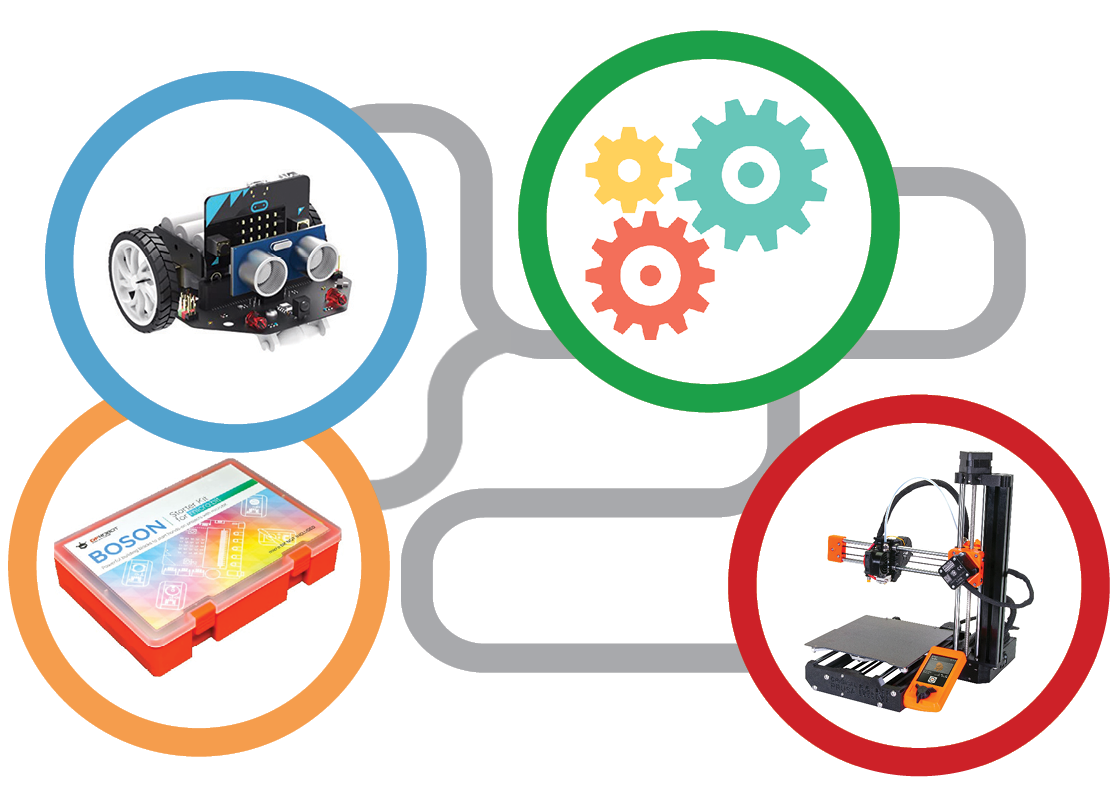
Source: IRIM/Croatian Makers
At the beginning of December, they opened two "Borrow, make, conquer "creative competitions. All interested can participate, regardless of age, education, and prior knowledge of programming, device making, and 'tinkering.'
The competition lasts until February 1, 2021, and the applications are still open. The main prize is a Prusa Mini 3D printer.
Digital Libraries for Local Development
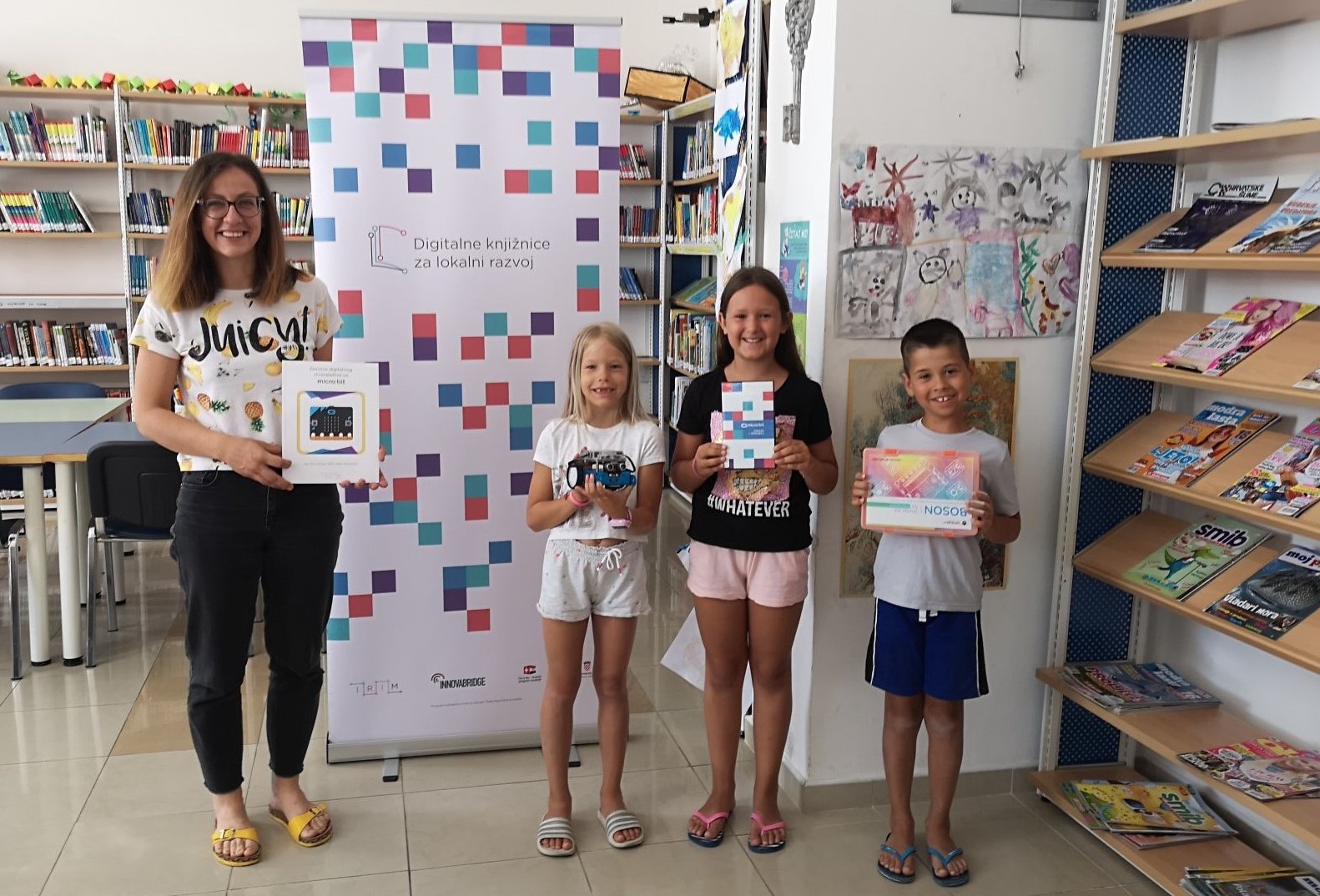
Source: IRIM/Croatian Makers
This project aims to strengthen libraries in Croatia and Switzerland. The goal is for them to become centers for the acquisition of STEM knowledge and digital competencies. The project uses a 'crowdsourced' network of devices for measuring atmospheric variables, which is free and publicly available in libraries.
They held two educational cycles of workshops around Croatia in which IRIM educators visited each library on two occasions. The first time by donating handbooks with a short introductory education, and the second time with the donation of AQ:bits and education.
AQ: bit is a device designed by IRIM educators that can be used to measure atmospheric variables (concentration of micro-particles in the air, humidity, pressure, temperature) and are intended as an educational supplement for micro:bit.
Within the project, they held 200 workshops and issued two handbooks as well.
Source: IRIM/Croatian Makers
Generation NOW
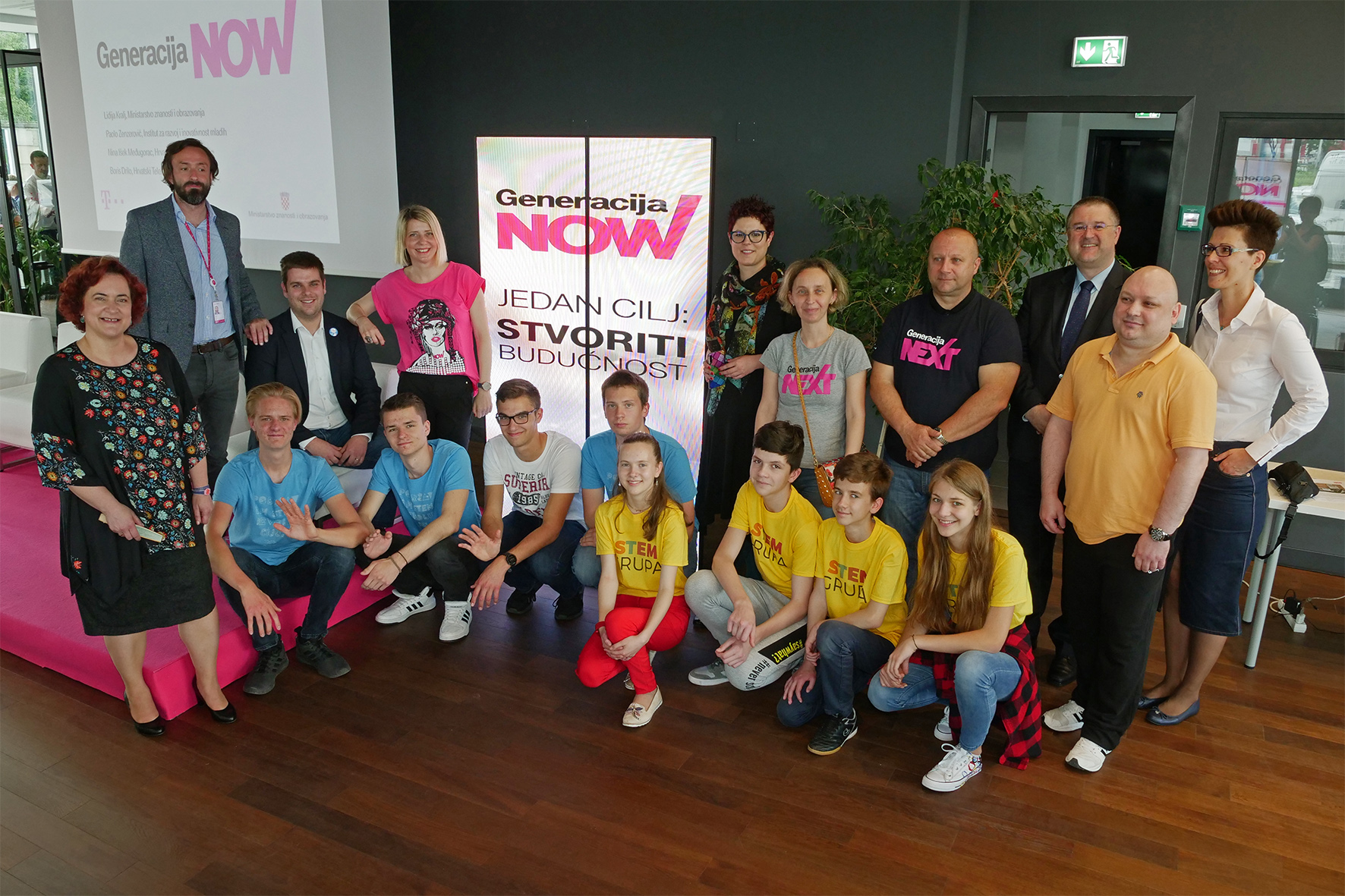
Source: IRIM/Croatian Makers
For several years now, IRIM has been implementing projects in partnership with Hrvatski Telekom. The aim is to introduce Internet of Things technologies in schools and associations throughout Croatia.
The goal is to connect existing and new knowledge in the use of Internet of Things technology, develop creativity, innovation, and create an opportunity for children to implement IoT projects from concept to finished model.
In the school year 2019/20., they included 110 institutions in the project and 2020/21—75 of them. Due to the coronavirus pandemic, the project will be extended for another year to allow all participants to create imaginary projects, present them in the final competition, and win valuable prizes.
Coronavirus pandemic and IRIM
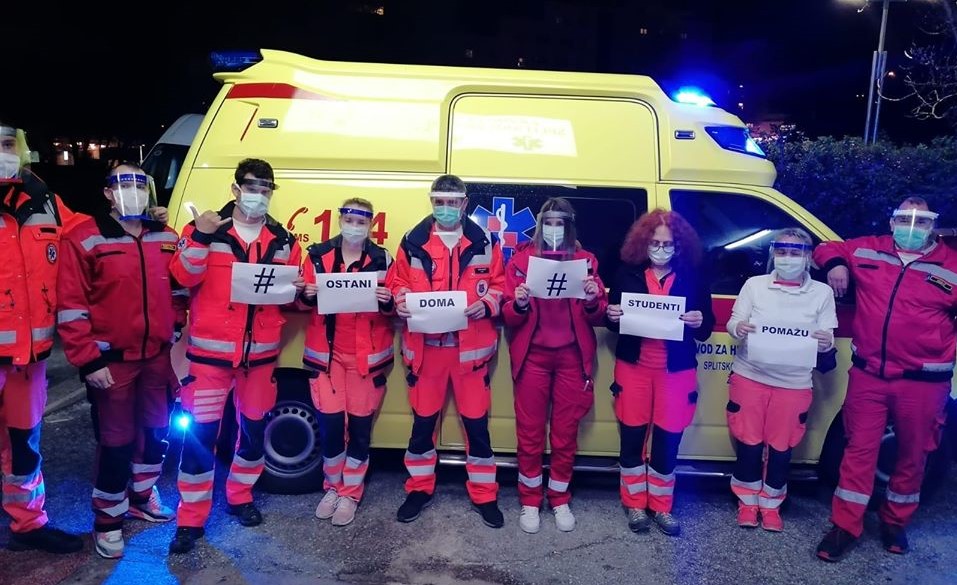
Source: IRIM/Croatian Makers
When they found themselves in a situation where everyday work and activities were no longer possible, they decided to join the Croatian Student Union's initiative to produce protective visors.
In just a few days, with partners and associates, they managed to organize and ensure protective visors' production. In the end, they donated 6,500 protective visors, which covered the initial needs of hospitals.
To read more news from Croatia, follow TCN's dedicated page.
Rujana Bakic on Croatian Digital Citizen 2.0, Empowering Libraries (VIDEO INTERVIEW)
February 23, 2020 - As Google.org announces a second $400,000 for the Croatian Makers IRIM project, TCN talks to Rujana Bakic on empowering libraries and Croatian Digital Citizen 2.0.
I have a very romantic notion of Croatian libraries. When I entered my first Croatian library back in August 2002 in Jelsa, there she was - a beautiful blonde assistant librarian with eyes the colour of the Adriatic. 18 years later, she is sitting across the room from me, preparing a presentation for me for a conference speech, my wife of more than 13 years.
Back then, in 2002, we had a daily routine. As the library was the only place with public internet on her computer, she had to make it available for paying users, such as myself. And so our friendship started.
Romance aside, one ageing desktop with eternally slow internet did not leave me with a lasting impression that Croatian libraries were a potential foundation pillar of digital change in Croatia. But, as with many things in Croatia, with the will and determination of a few good men and women, mountains can be moved.
One of the most exciting projects in Croatia today, planting digital seeds for future and current generations is taking hold not only in Croatia but all over the region, led by Nenad and Rujana Bakic and described thus on the official website:
IRIM (Institute for Youth Development and Innovativity) is a Croatia-based non-profit organization (private foundation), which has developed and implements the largest extracurricular STEM program in EU – the Croatian Makers movement, encompassing now over 150,000 children in Croatia. Although IRIM originates from, and primarily operates in, Croatia, it has transposed its activities to Serbia, Bosnia and Herzegovina and Kosovo, where IRIM and local partners deliver IRIM-designed major projects (with initial funding from IRIM), reaching tens of thousands more children. Some programs are joint regional activities. Such cross-border co-operation is of utmost significance in the region which still suffers consequences stemming from the conflicts in the 1990s.
IRIM donates a large amount of equipment, but only as a foundation for wide and deep knowledge distribution using that equipment, through organized activities, teacher education (more than 3,000 teachers educated only in Croatia), content development etc.
The initial and still the core financing comes from local philanthropists, the Bakić family, but due to developing size and scope of its activities it has lately been attracting additional financing from external sources, including citizens (through public crowdfunding campaigns and general donations), companies, national and EU development funds. At the moment, IRIM employs 10 people, but has developed a strong ecosystem of educators ('ambassadors') and rich content platforms, enabling it to leverage its activities.
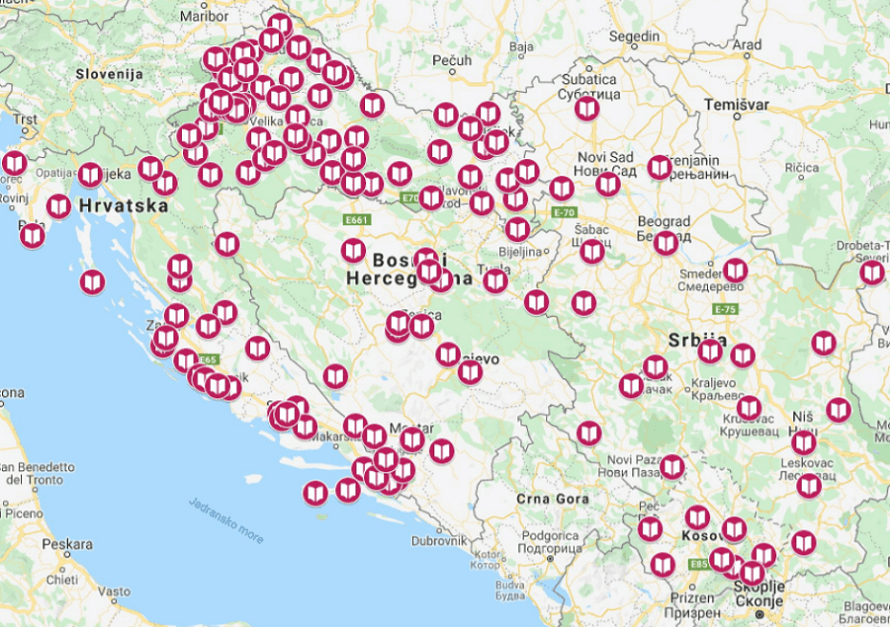
Partnering with Google.org who dispersed an initial grant of $250,000 to IRIM back in 2018, Nenad and Rujana Bakic and the IRIM team have been focusing part of their efforts on transforming Croatian libraries from static and disconnected buildings which store books for hire to places of learning, innovation and empowerment. Apart from donating equipment, the project - which last week received an addition $400,000 grant from Google for the next year - is also heavily focused on education, training and workshops, empowering librarians with new digital skills to assist their library users.
Empowered and well-trained librarians at the local level are in a great position to assist the local community and develop skills for the future - for all generations - and there have been more than 1,500 workshops just for librarians so far.
More than 13,000 people of all ages have taken part in the project, taking advantage of the technology, expertise and equipment donated to the libraries by IRIM.
The project is ambitious and is expanding rapidly, with greater 3D printer availability and the world's first 'makerspaces' in libraries in the world coming to Croatia soon.
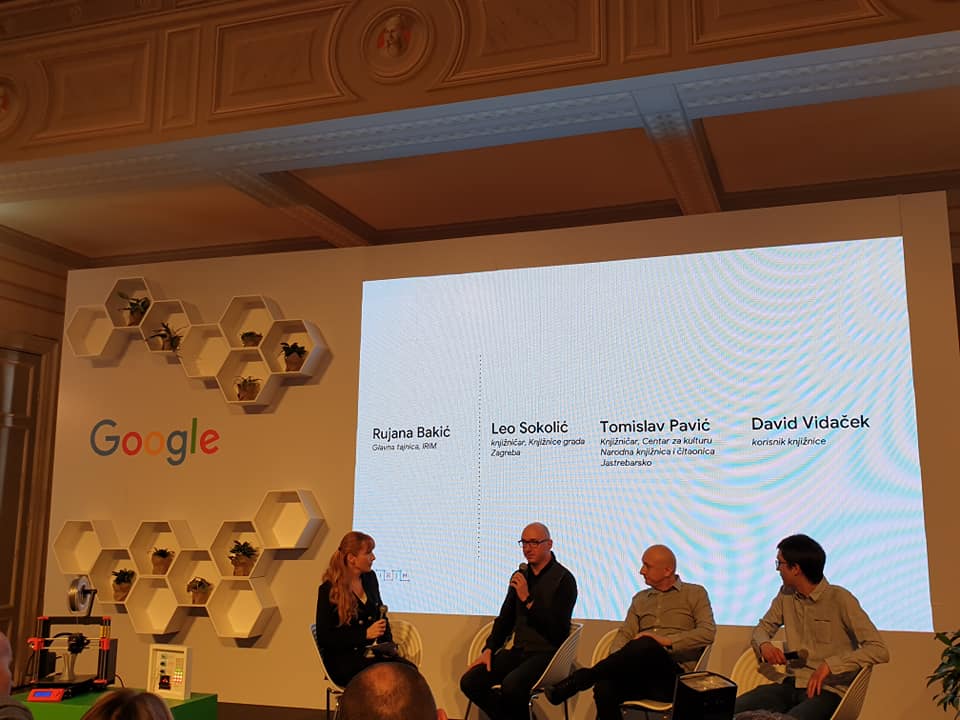
Rujana Bakic was among the speakers at this week's gathering at HAZU in Zagreb, hosted by Google.org and IRIM, which was attended by the US Ambassador to Croatia, Robert Kohorrst. Rujana hosted a panel talking to librarians and end users on their real-life experiences the IRIM library services.
I am grateful that she found the time to explain the project to us in greater detail on camera in perfect English, and with great passion.
Thank you both, and the entire IRIM team, for this fantastic initiative. Idemo dalje!
Junior Engineer Academy Links High Schools with Universities and Labour Market
The Junior Engineer Academy programme was presented today at the Zagreb Innovation Centre. This is a project developed in the collaboration of Deutsche Telekom Stiftung, the Institute for Youth Development and Innovativity (IRIM) and Croatian Telecom (HT), the leader of the STEM revolution in Croatia. A vital feature of the programme is to establish and maintain close links with companies and universities that provide students with an early insight into the world of engineering in all areas of technology and science, reports tportal.hr on March 26, 2019.
In the first phase of the project, the IRIM selected 15 vocational schools to participate in the project implementation, donated advanced technology and funds to schools, and provided mentors with training to enable them to transfer the knowledge to students and work with them in the process of converting creative ideas into solutions using the IoT technology.
The second phase involves connecting the selected schools with related educational institutions and the business sector. Throughout the process of creating solutions, the IRIM provides continuous mentoring by its experts. The ultimate goal is to establish permanent co-operation between the educational and business sectors, which will result in stronger and more productive links between educational institutions and the labour market.
One of the main goals of the activities of Croatian Telecom, including through the STEM literacy programmes, is to bring technology into every corner of Croatia and thus create equal opportunities for everyone, and education is the starting point for bringing about such changes in the society.
In partnership with the IRIM, Croatian Telecom has equipped 160 schools in the last two year, while about 130 mentors and more than 2000 students have attended educational programmes to be prepared for the future created by the technological revolution. Young creators are achieving significant successes in global competition in creating innovative IoT solutions. The latest such success is the achievement of Vukovar high-schoolers who won the first prize at the worldwide competition marking the anniversary of Arduino - the technology which Croatian Telecom offers to a growing number of schools in Croatia.
“Getting the STEM knowledge to everyone is essential for young people to learn how to use technology to find solutions. That is why, for the third year in a row, we have completely changed the approach to learning in schools, and we are the leader of the STEM revolution in Croatia. We are proud that young people today have the opportunity to implement their ideas using the latest technology. Successes such as the one achieved by the high-schoolers from Vukovar prove that we are moving in the right direction and encourage us to continue developing such programmes,” said the director of HT corporate communications Nina Išek Međugorac.
“We will not stop until all schools accept the challenge and become part of the HT educational programme because that is the only way to create generations that will lead our society forward. We want these creative individuals with the competences of the future to motivate the whole society to join the wave of change that will result in simpler and better lives," Išek Međugorac said.
"With this project, we want to expand IRIM activities and strengthen high schools by providing them with cutting-edge technology, financial donations and continuous support through professional mentoring. Through the establishment of the Junior Engineer Academy network in Croatia, we want to foster cooperation between the educational and business sectors as well as the development of competencies that will prepare the young for the future," said IRIM president Nenad Bakić.
More news about IRIM can be found in the Business section.
Translated from tportal.hr.
Croatian Robotics Team from Đakovo Enters Final of International Competition
As Index writes on the 8th of December, 2018, a talented Croatian robotics team from the Josip Antun Ćolčić elementary school in Đakovo has been placed into the final round of the MakeX competition, among sixteen of the best teams in the world.
The members of the Croatian team, Ana Švegli and Iva Mijakić, under the mentorship of Tomislav Milanović, impressed all those present in China where the competition in educational robotics, MakeX, is being held.
The Croatian competition has been organised by the Institute for Development and Innovation of the Youth (IRIM). The aim of this, as well as of all of the other projects, is to enable all students in the Republic of Croatia to have equal opportunities participate in the development of robotics, automatics, and other needed programming skills.
The most successful Croatian robotics team from the national MakeX competition flew all the way to China, and this competition is otherwise IRIM's most extensive educational and competitive project to date, as well as the largest unified robotics competition in the whole of Europe. An afternoon of preparations now awaits the innovative young Đakovo robotics team, and tomorrow will bring the final round of the competition. Other teams are continuing on with technical challenges as an additional part of the competition.
"The tempo of the competition is very demanding, but our team is fantastic. Many of them are getting along well with the teams from China and from other countries, and here, we're (almost) an attraction, everyone wants to get a picture with the teams,'' wrote Paolo Zenzerović of the Institute for Development and Innovation of the Youth on his Facebook profile.
In addition to the competition itself, the presentation of Makeblock products was also held today, and the Croatian robotics team played around with a laser cutter and made a personalised Croatian Makers bear, they also got to see a fully functional wooden mBot robot.
Make sure to stay up to date with our dedicated Made in Croatia and lifestyle pages for more on Croatia's young talent, as well as on domestic innovation and technology.
Google Supports IRIM’s Digital Technology Skills Projects
ZAGREB, November 25, 2018 - The Institute for Youth Development and Innovativity (IRIM) has received 250,000 dollars from Google for projects aimed at introducing digital technology skills for children and adults through public libraries in the local community as well as stimulating libraries to become digital innovation centres, the founder of IRIM, Nenad Bakić, said at a presentation of IRIM's latest project.
The IRIM projects aims to empower public libraries to become centres for developing digital competencies in local communities and will include libraries in Croatia, Serbia, Bosnia and Herzegovina, and Kosovo, Bakić said.
IRIM or Croatian Makers is a privately financed initiative developing and deploying a "layered family of platforms" for STEM initiatives in school.
Bakić explained that Google's support will help significantly expand IRIM's concept of transforming libraries into public learning spaces for new technologies, but also as digital innovation centres.
Part of Google's mission in Croatia is to make digital technology accessible to everyone, Google's manager for the Adriatic region Joško Mrndže said. In the next 10 to 15 years, automation will change working environments and create 21 million new jobs; 90% of these jobs will require at least some level of digital skills, he added.
According to European Commission data, 44% of the EU's population and 37% of the labour force doesn't have a sufficiently developed knowledge of digital skills.
Minister of Science and Technology Blaženka Divjak underscored that the digital citizen project enables the wider community to develop digital skills, which she added is of exceptional importance and significance for the fourth industrial revolution.
Economy Minister Darko Horvat underlined that 2019 would be the year of digital transformation and announced the digitisation of public procurement and the compulsory issuance and receipt of e-invoices for local and central budget beneficiaries.
Horvat announced that as of 1 April citizens will be able to start a business online. He added that doing business would be made easier for entrepreneurs and could save about 640 million kuna. The minister underlined that doing away with some administrative procedures, about two billion kuna could be saved in the next three years.
For more on the Croatian Makers project, click here.
Snapshot of Despair and Hope in The Beautiful Croatia with Nenad Bakic
November 14, 2018 - The 4th G2 Croatian diaspora conference concluded yesterday at Forum Zagreb, a stimulating 2-day event which brought together the widely dispersed Croatian diaspora from North and South America, Australia and every part of Europe, as well as strong representation from Croatia's entrepreneurs and start-up businesses.
Among the many excellent presentations, I had been particularly looking forward to successful entrepreneur Nenad Bakic's presentation on his Croatan Makers project, bringing technology and robotics to the youth of Croatia today. With all the business interests he is running, I have no idea how he finds time to run his STEM revolution, which has distributed 100,000 micro:bit devices into over 1,000 schools, the largest private educational initiative in Croatian history. But then when he sent me a message at 5am this morning, I realised the secret of his phenomenal productivity - the man simply must never sleep. I guess the fact that I immediately responded means that not do I.
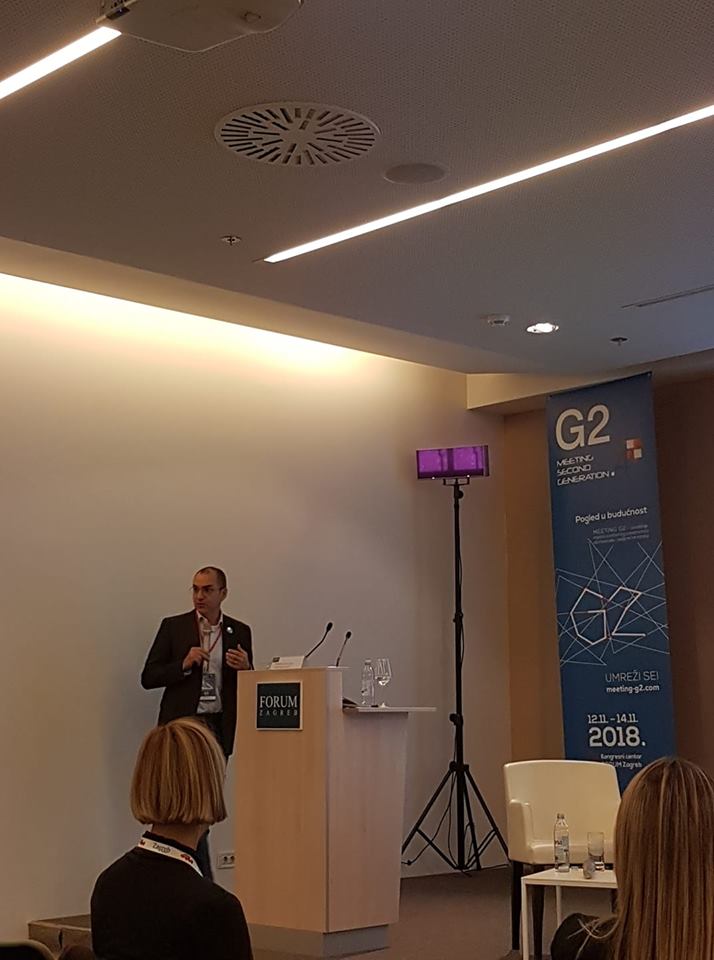
I know Nenad reasonably well, and he was kind enough to invite me to the EY Entrepreneur of the Year award earlier this year, where I got a glimpse of a very vibrant and unified entrepreneurial Croatia, which really gave me hope for the future.
I had never heard Nenad give a presentation before, and so I was curious to see how he did. It turned out he did rather well indeed, easily the most engaging presentation of the entire conference, at least in the opinion of this foreign fly on the wall.
He also laid out quite brutally the realities of life in The Beautiful Croatia - how people perceive aspects of life here, using a survey by the European Commission on public opinion about their countries. The survey was published in December 2017, and Nenad wrote about it on his blog earlier this year. I was not the only person who sat shocked in the audience. The data he was presenting was not only shocking, but it also went a long way to explaining why so many people are leaving Croatia today.
The survey asked a number of questions about perceptions of life in the respondent's EU country, where they were asked to choose from four responses on how much they agreed with a particular questions - Essential, Total Imporant, Total Not Important and Don't Know. Croatia was at the bottom of almost everything, with the VERY important exceptions of two things - it tells an awful lot about the reality of the daily grind in Croatia (tourists, look away now - it is a GREAT place for a 2-week holiday).
How important is working hard to getting on in life. Croatia, bottom of the EU table of citizens thinking this as essential.
How important is education in getting on in life? Not very (Croatia is joint bottom with France).
How important are political connection to getting on in life? We have an Olympic champion - Croatia, 12 points!
How important is being lucky to getting on in life? The belief in luck is second only to Bulgaria in the EU.
So a country that does not believe in the need to work hard or have a good education, but where political connections and luck are all you need ranks rather differently than most of the rest of the EU, our lucky Bulgarian colleagues aside.
Although Nenad stopped there yesterday evening, I took a closer look at some of the other questions. People here think life is pretty unfair, more so than anywhere but Greece.
Equal opportuities? That is one we could laugh about over a raki or three with the Greeks.
And people certainly don't get what they deserve in life, if they life in Croatia.
Do political decisions apply to all? Not, apparently, in Croatia.
And a rather surprising finding, for me at least - Croats feel themselves to be the loneliest nation in the EU.
And don't feel particularly healthy.
With not a lot of happiness.
Nenad Bakic is not a man to dwell on misery and the failings of Croatia. In business and in his educational initiatives, he is working round the clock to bring positive change, and I applaud him for that. The only way to move Croatia forward is through education. Education. Education. Education.
And so, from such shocking findings, he moved his speech to the positive initiatives he and his wife Rujana are working on with their partners. Rather than do a detailed analysis of that work today, here is an English language summary of Croatian Makers and their objectives. You can visit the website here.
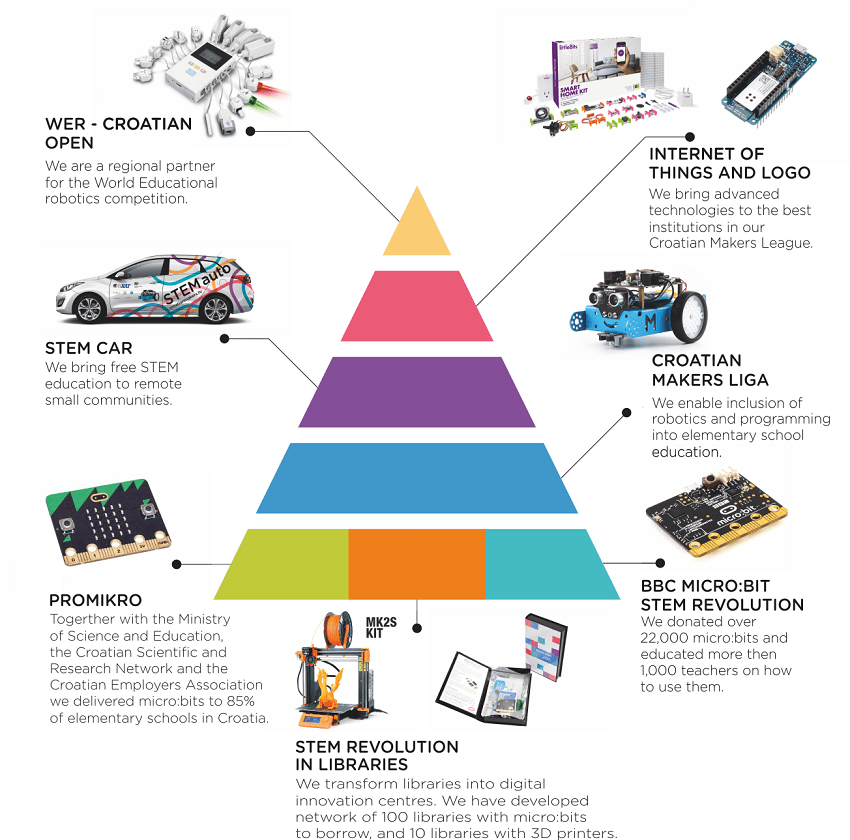
IRIM
IRIM (Institute for Youth development and Innovativeness) is a Croatia-based non-profit organization (private foundation), which has developed and implements the largest extracurricular STEM program in EU – the Croatian Makers movement, which now includes over 100,000 children. Although IRIM originates from, and primarily operates in, Croatia, it has recently transposed its activities to Serbia, BiH and Kosovo, where local partners deliver IRIM-designed major projects (with initial funding from IRIM), also with the aim of engaging in joint regional activities. Such cross-border co-operation is of utmost significance in the region which still suffers consequences stemming from the conflicts in the 1990s.
IRIM donates a large amount of equipment (also consisting the main cost of project operations), but only as foundations for wide and deep knowledge distribution using that equipment, through organized activities, teacher education (more than 3,000 teachers educated in Croatia only), content development etc.
The initial and still core financing comes from local philanthropists, family Bakić, but due to developing size and scope of its activities it has lately been attracting additional most of the financing from external sources, including citizens (through public crowdfunding campaigns and general donations), private companies, national and EU development funds. At the moment, IRIM employs 14.
IRIM’s mission
IRIM’s core mission is to empower all the children in Croatia and the region to develop STEM competencies necessary for them to be equal citizens of 21st century, by providing not only equipment, but also education and other activities.
The educational system in Croatia and the neighboring regional is undergoing reforms, but currently it cannot deliver well neither in STEM fields nor in developing key competences such as collaboration, communication and learning skills, creativity, curiosity, persistence and leaderships, and IRIM’s activities are not only naturally inductive for developing those competencies, but also on purpose geared toward them. A nice illustration is this excerpt from a prime-time feature on the national TV about Croatian Makers in Dvor, one of the least developed towns in Croatia:
(turn on subtitles in English).
Additionally, by a relevant research by Eurostat, the citizens of Croatia have the lowest in EU estimate of the importance of education and hard work as key elements for success, and the highest estimate of political connections and luck. It is similar in Western Balkans countries where IRIM’s designed activities are deployed by local partners. Hence, IRIM’s main social mission is creating a culture of success, aiming at strengthening meritocracy as the central pillar and main driver in society.
The central player in educational ecosystem, with strong capacity for co-operation
IRIM strong capacity for partnership and a wide national/public support adds significantly to its success. For example, a project called STEM Revolution was primarily financed by the largest-ever crowdfunding campaign in Croatia, topping over 300,000 USD donated by more than 2,500 individuals and organizations. More than 25,000 coding devices were delivered to more than 1,000 educational institutions including schools, universities, NGOs, orphanages etc., together with extensive teach-the-teacher workshops and developing content.
Following STEM Revolution’s unique success, IRIM partnered with the Ministry of Science and Education to introduce coding to Croatian schools, delivering coding devices micro:bit to all the Grade 6 pupils, developing cross-subject content, and educating over 2,000 teachers. Other significant partners include Croatian Employers Association, Rotary clubs, and a number of corporations like Croatian Telecom, Croatian Post, Tele2, INA – Croatian national oil company, etc., and IRIM has successfully applied to a number of national and EU grants.
IRIM’s unique approach is combining grassroots (movement) with institutionalization. Its strength stems from the base, teachers and children voluntarily joining the movement, but it always strives to institutionalize, getting educational and other institutions on board, thus avoiding friction and using institutional leverage.
Croatian Makers movement by its size and intensity has a great impact not only on schools and other educational institutions and the school system, but the society as a whole. IRIM’s focus in on equality of opportunities and for this purpose IRIM has developed a family of platforms, ranging from most democratic to more complex project like robotics league, advanced robotics competition and other advanced projects. A good example of complex projects is a massive IoT collaborative project which includes 100 schools, engaging in simultaneous measurements of 7 ecological variables and presenting them at a public website in real time. The ability to recruit such a large number of partners for such an advanced project demonstrates the size and depth of the movement and its capacity to devise and manage complex projects.
IRIM’s projects / family of platforms
- STEM revolution / ProMIkro - The most democratic IRIM’s project was introducing coding to Croatian educational system and communities at an unprecedented level using a physical-computing controller micro:bit. Previously, there was no coding in Croatian schools, apart from patchy optional subject.
This project has been implemented in two steps. The first was ‘STEM revolution’, primarily funded by the most successful crowdfunding campaign ever in Croatia. It brought 25,000 coding devices to more than 1,000 institutions in Croatia (elementary and secondary school, universities, libraries, orphanages …) together with developing curriculum and teaching the teachers. For the second, ProMIkro, IRIM teamed up with the Ministry of Science and Education which funded 45,000 micro:bits for all the Grade 6 children in Croatian schools, thus effectively introducing coding to elementary schools. The schools opted in voluntarily, and 85% of them opted to join the project. Thus coding was thus effectively introduced to Croatian elementary schools.
Teaching the teachers was the key element of the projects. Following a large-scale education effort in STEM Revolution, in ProMikro IRIM delivered more than 500 workshops in 3 waves for 2,000 teachers, out of whom the majority never, or rarely, coded before. The workshops were executed by a network of 30 technology ambassadors IRIM developed from its ecosystem, and workshops were financed by the Croatian Employers’ Association. IRIM developed extensive cross-subject curriculum comprising of more than 60 teaching lessons ready to be taught in class.
- Croatian Makers Robotics League is IRIM’s flagship project in robotics, the largest competition of such kind in EU with more than 11,000 children included in more than 550 schools and non-profits, whereas IRIM has donated more 2,750 robots. The educational institutions participate regularly, in 4-5 rounds during the schools year, and locally, so that the subject can be integrated into the curriculum, and not be (as is usual with robotics competition) one-off.
The successful concept of the Robotics League has since been successfully implemented in Serbia, BiH and Kosovo by local partners (with IRIM’s initial donations), and the one in Serbia now includes almost 500 schools, and has been mostly financed by Serbian government.
It important to emphasize that the Robotic League is using the same robotics platform (mBot by Makeblock) in all included countries, which ensures full compatibility and interoperability of activities at regional level.
- Advanced regional robotic competition WER using advanced robotics sets by Abilix, participants being all the best regional teams from abovementioned leagues is regional flagship competition in educational robotics. IRIM is in talks with another global leader in educational technology, Makeblock, to implement Makeblock regional / EU competition, and its ‘league’ concept to be implemented globally.
- STEM car, a ‘modern era-moving library’, bringing free coding and robotics classes to less developed communities. STEM car is a continues project (in 2018. there will be 6 cross-country tours lasting 2-4 weeks) and has already visited hundreds of villages and towns, with hundreds of workshops for thousands of kids, introducing them to the world of technology and inducing them into other IRIM’s activities.
- Izradi! IRIM uses several channels of knowledge distribution, among which is a premier one is its content platform Izradi! (=Make!).
- STEM Revolution continues - Libraries - Especially worth noticing, whereas IRIM aims to empower public libraries to become centers for developing digital competencies in local communities. It is equivalent to e.g. Singapore’s national Digital Maker program aiming to transform the nation introducing technology to schools and families (using primarily micro:bit, as IRIM does). Within the project, IRIM donated
- coding devices micro:bits for free workshops and to borrow to 100 public libraries in Croatia
- donating 3D printers to 10 and to the National and University Library.
Thus, libraries are transformed into public learning spaces for new technologies, but also as digital innovation centers.
- Advanced IoT in Croatian schools Technologically most advanced project by now for the whole Croatian Makers ecosystem has been, financed primarily by Croatian Telecom, which has been the largest outside donor, IRIM winning 2 of its major grants.
Using advanced Arduino technology, 100 educational institutions – schools, NGOs, orphanages – simultaneously measured and publicly displayed 7 ecological variables, including micro-particles. That final demonstration was preceded by two calls for creative projects in using IoT related to smart homes and pets and domestic animals.
Croatia's Brightest: Marisa and Benjamin, from School in Primošten to Robotics World Championship in China
March 14, 2018 - We're starting a new series dedicated to Croatia's best and brightest: young innovative minds shining as beacons of hope in a country that's doing its best to intentionally block all attempts at progress and development. From talented elementary school pupils to young entrepreneurs, from world championship winners to exceptional startups, we'll be sharing inspiring stories to show our society just might have a shot at rising above the discouraging state of affairs. Starting with a story of a remarkable initiative from Primošten which took two kids from an elementary school class to the world championship in robotics in China
Croatian Makers STEM Car Goes on Tour to Offer Free Summer Workshops in Robotics
STEM Car will be travelling through Slavonia for two weeks, offering free robotics and programming workshops.
Croatian Makers: Moving From 1991 to 2031
The story of Rajić village should be the story of Croatia: from “Where were you in 1991?” to “Where will my child be in 2031?”


